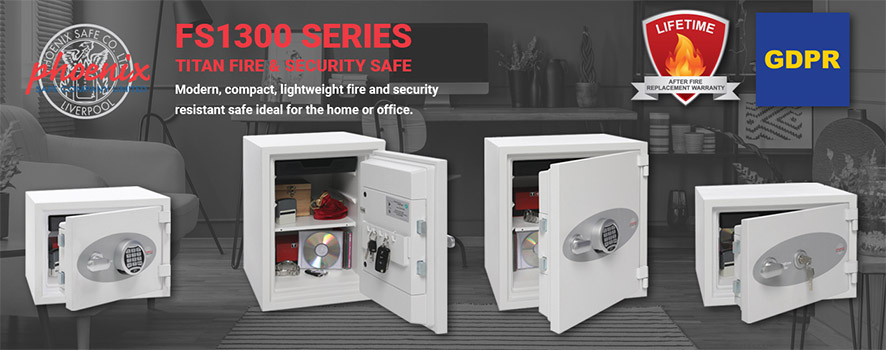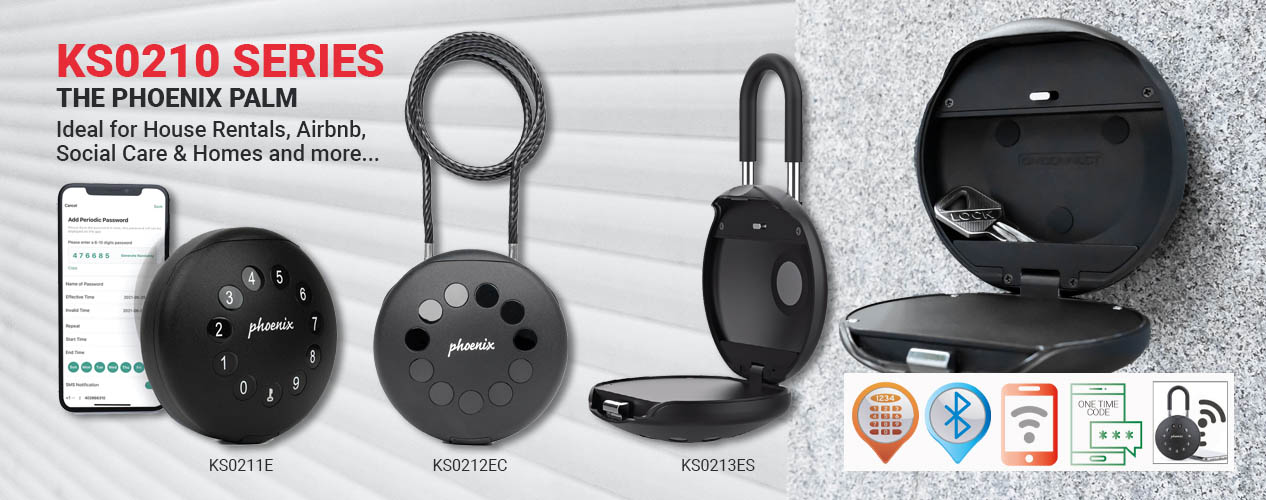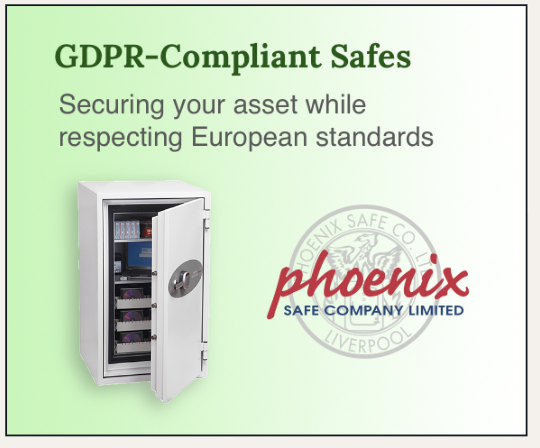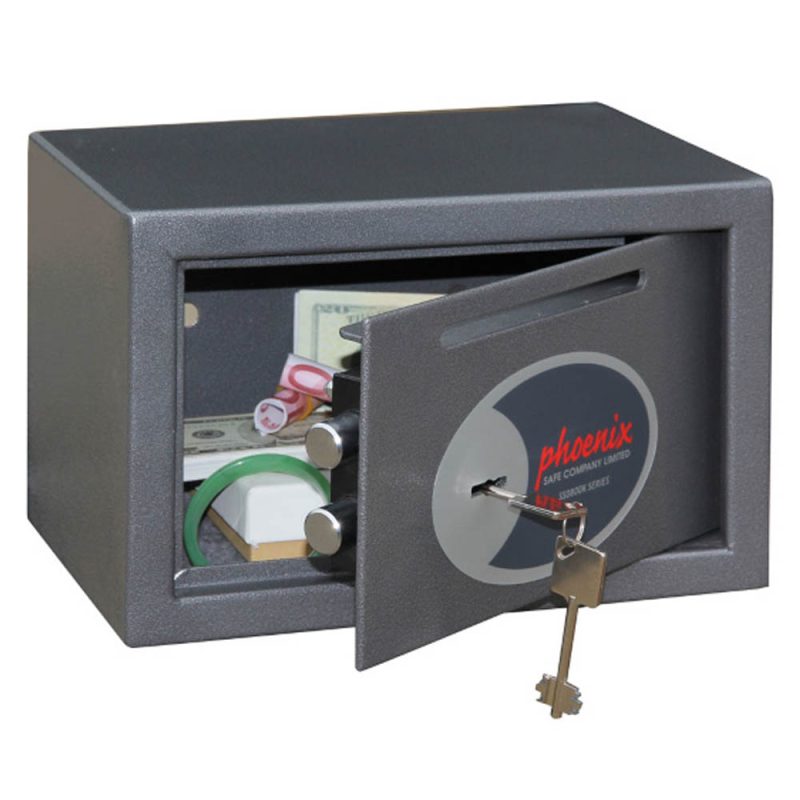Having a home safe can provide numerous benefits.
Here are some advantages of having a home safe:
Protection of Valuables: One of the primary benefits of a home safe is the protection it offers for your
valuable belongings. You can store items such as jewelry, cash, important documents (passports, wills,
contracts), sentimental items, and electronic media (hard drives, USBs) securely within the safe. This
safeguards them from theft, loss, or damage.
Security against Burglary: A home safe acts as a deterrent to burglars. Safes are typically heavy,
anchored securely to the floor or wall, and designed to withstand forced entry attempts. This makes it
difficult for thieves to access your valuable possessions, providing an added layer of security for your
home.
Fire and Water Protection: Many home safes are designed to be fire-resistant and can protect your
important documents and valuables in case of a fire. Fire-rated safes are built with materials that can
withstand high temperatures for a specified period, keeping the contents safe. Additionally, some safes
offer water resistance, safeguarding your items from water damage due to floods or accidents.
Organisational Efficiency: A home safe helps you stay organised by providing a designated place for
important documents and valuables. Instead of scattering your belongings throughout the house, you
can keep them in one secure location, making it easier to locate and access them when needed.
Peace of Mind: Having a home safe provides peace of mind knowing that your valuable possessions
are protected. Whether you’re away on vacation or simply out for the day, you can have confidence that
your important items are secure and less vulnerable to theft or damage.
Protection against Identity Theft: Safely storing sensitive documents such as passports, social security
cards, and financial records in a home safe can help protect against identity theft. By keeping these
documents secure, you reduce the risk of unauthorised access and potential misuse of your personal
information.
Insurance Benefits: Some insurance companies offer lower premiums or discounts on homeowners’
insurance if you have a home safe. This is because a safe can reduce the risk of loss or damage to
valuable items, making you a lower insurance liability.
Remember to choose a safe that suits your specific needs, taking into consideration factors such as size,
security features, and fire/water ratings. Additionally, consider informing trusted family members or
individuals about the safe’s existence and location in case of an emergency.
What is typically stored in home safes?
Home safes are commonly used to store various types of valuable items and sensitive documents. Here
are some examples of what people typically store in home safes:
Jewellery: Valuable jewellery, including rings, necklaces, bracelets, earrings, and watches, is often
stored in home safes to protect against theft and loss.
Cash and Currency: Home safes provide a secure place to store cash, both in the form of bills and
coins. It can be a convenient option for keeping emergency funds or extra cash on hand.
Important Documents: Safes are ideal for storing important documents such as passports, birth
certificates, marriage certificates, wills, property deeds, and insurance policies. These documents are
protected from theft, fire, and water damage.
Firearms and Ammunition: Gun owners may choose to store their firearms, ammunition, and related
accessories in a home safe. This ensures they are secure and inaccessible to unauthorised individuals,
providing an additional layer of safety.
Digital Media and Data Storage: Hard drives, USB flash drives, CDs, DVDs, and other forms of digital
media that contain important or sensitive data can be stored in a home safe. This protects them from
physical damage and unauthorized access.
Sentimental Items: People often store sentimental items such as family heirlooms, sentimental
photographs, letters, and keepsakes in home safes to preserve their sentimental value and protect them
from loss or damage.
Valuable Collectibles: Collectible items like rare coins, stamps, trading cards, or other valuable
memorabilia can be stored in a home safe to protect their value and preserve their condition.
Data Backup: Some individuals use home safes to store backups of their computer data, including
external hard drives or encrypted backup tapes. This helps protect important files and documents in case
of computer failures or data breaches.
Remember to consider the size and capacity of the safe when determining what items you want to store.
It’s also important to regularly review and update the contents of your safe, removing items that are no
longer needed and adding new ones as necessary.
Are there any risks to having a safe at home?
While having a safe at home can provide numerous benefits, it’s important to be aware of potential risks
or considerations associated with owning a safe. Here are a few points to keep in mind:
Limited Protection: While home safes can offer protection against theft, fire, and water damage, it’s
essential to understand their limitations. Not all safes provide the same level of security, and some may
be more susceptible to certain threats. It’s important to choose a safe that meets your specific needs and
offers the appropriate level of protection for the items you intend to store.
Safe Cracking: Although home safes are designed to be secure and resistant to forced entry,
determined burglars with professional tools and expertise may still attempt to crack the safe. Advanced
techniques and tools, such as lock manipulation or drilling, can potentially compromise the security of the
safe. Choosing a high-quality safe and considering additional security measures, such as alarm systems
or surveillance cameras, can help mitigate this risk.
Insider Threats: It’s important to consider the potential for insider threats within your household. This
includes individuals who have regular access to your home, such as family members, domestic staff, or
contractors. While trust is usually the foundation of these relationships, it’s essential to evaluate and
monitor access to the safe and limit it to trusted individuals.
Limited Insurance Coverage: Some insurance policies may have limitations or exclusions when it
comes to covering valuable items stored in a home safe. It’s advisable to review your insurance policy to
understand the extent of coverage for items stored in a safe. Consider obtaining additional insurance
riders or consulting with your insurance provider to ensure proper coverage for high-value items.
Accessibility and Convenience: While a safe offers security, it’s important to balance it with
accessibility and convenience. If the safe is too difficult to access or inconvenient to use, it may
discourage regular usage or make it challenging to retrieve items when needed. Consider factors such
as the size, location, and ease of access to the safe to ensure it fits your lifestyle and requirements.
Forgetting Combinations or Losing Keys: If you opt for a safe with a combination lock or key-based
access, there is a risk of forgetting the combination or misplacing the key. It’s crucial to keep backup
copies of the combination or spare keys in a secure place, separate from the safe itself. This helps
prevent potential lockouts or the need for expensive locksmith services.
By being aware of these potential risks and taking appropriate precautions, you can enhance the security
and usability of a home safe. Regularly reviewing and updating security measures can help ensure that
your valuable possessions remain protected.
Top Tips about Getting a home safe
Determine Your Needs: Assess what you plan to store in the safe and consider the size, type, and
features required. Make a list of the items you want to protect and estimate their total value. This will help
you select a safe that meets your specific needs.
Evaluate Security Features: Look for safes with robust security features such as solid construction, pry-
resistant doors, and reliable locking mechanisms. Consider features like electronic keypad locks.
Check Fire and Water Ratings: If you need protection against fire or water damage, select a safe with
appropriate ratings. Look for fire-resistant safes with certified fire ratings indicating the duration the safe can withstand high temperatures. Consider safes with water-resistance features if you live in a flood-
prone area or want added protection against water damage.
Choose the Right Size and Capacity: Consider the dimensions and storage capacity of the safe to
ensure it can accommodate your valuables. It should be spacious enough for your current needs and
allow room for future additions. However, avoid oversized safes that may be difficult to conceal or install
discreetly.
Anchoring and Installation: Determine whether the safe needs to be anchored to the floor or wall for
added security. Proper installation is essential to ensure stability and prevent unauthorized removal of
the safe. Consult a professional or follow the manufacturer’s instructions for correct installation.
Research Reputable Brands and Retailers: Choose a reputable brand known for manufacturing high-
quality safes. Research customer reviews and ratings to gauge the reliability and performance of different brands and models. Additionally, purchase from trusted and authorized retailers to ensure authenticity and proper warranty coverage.
Consider Location and Concealment: Decide on the ideal location for the safe within your home. Choose a spot that is secure, discreet, and less likely to be targeted by burglars. Consider concealing the safe behind furniture, in a closet, or within a secure room to enhance its protection.
Inform Trusted Individuals: Share information about the safe and its location with trusted family members or individuals who may need access in case of emergencies. Keep a record of the combination or spare keys in a secure place, separate from the safe itself.
Check Insurance Coverage: Review your homeowner’s insurance policy to understand coverage for
items stored in a safe. If necessary, obtain additional insurance riders or consult with your insurance
provider to ensure proper coverage for valuable items.
Regular Maintenance and Inspections: Conduct regular maintenance and inspections of the safe to
ensure it remains in optimal condition. Check the locking mechanisms, hinges, and seals periodically and
address any issues promptly.
By considering these tips, you can make an informed decision when selecting a home safe that offers the
desired level of security and protection for your valuable possessions.




